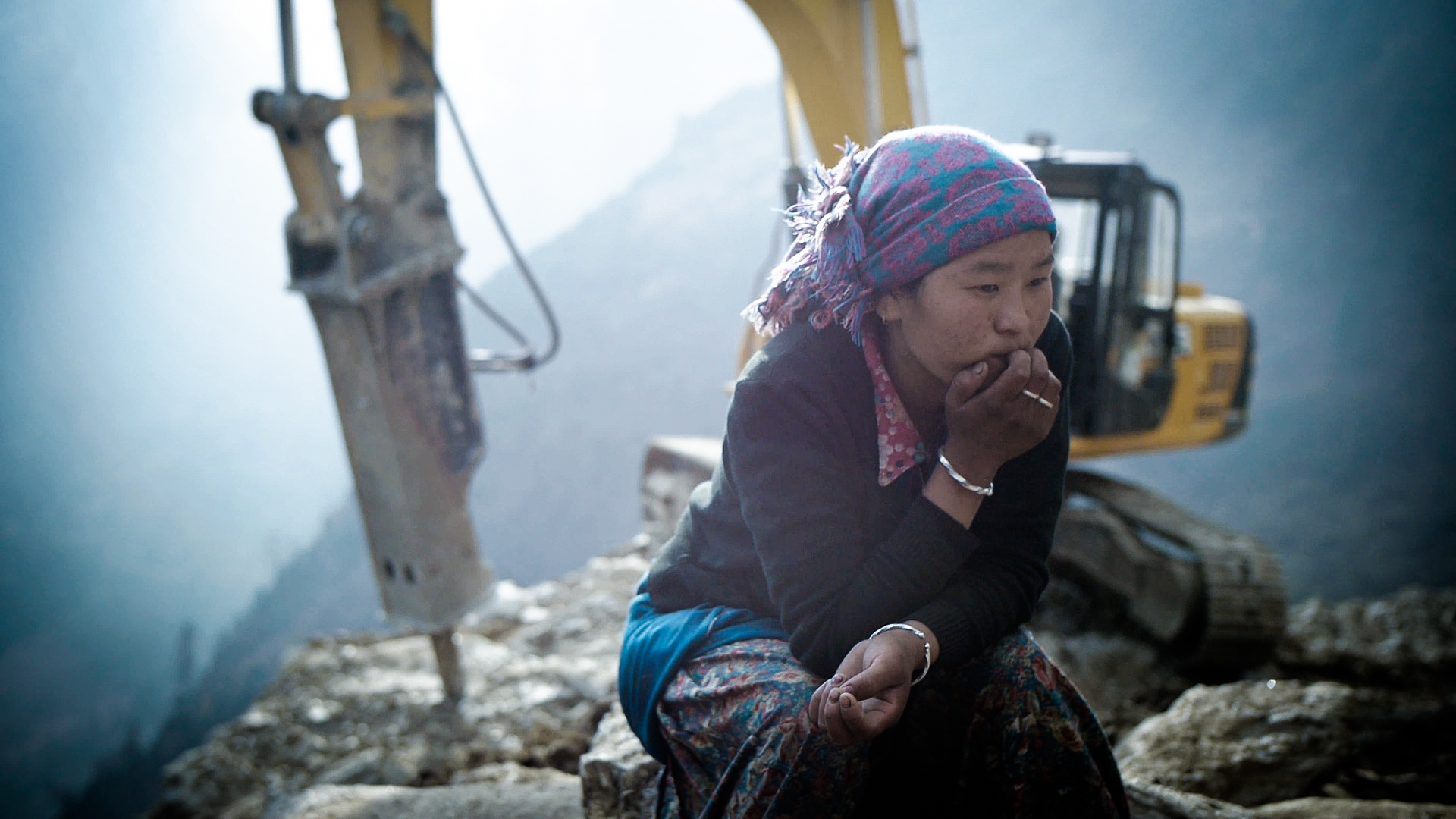Baato
Year: 2020Certificate: 12
Every winter Mikma and her family travel by foot from their village deep in the Himalayas of Nepal to sell local medicinal plants in urban markets. This year, construction of a new highway to China has begun in their roadless valley, and things are never going to be the same.
The documentary film Baato (n. [Nepali] 1. path, trail; 2. way; 3. road) is a beautifully crafted, clear-eyed chronicle of the construction of a trans-national highway in Nepal, and of the many different dimensions that come into play with an infrastructural project of this scale, both macro (economic and political forces) and micro (the backbreaking and dangerous labour involved in construction, the impact on those who live along the road’s route, and so on). In particular, directors Kate Stryker and Lucas Millard reveal the impact of the project on a particular family living in a heretofore isolated community in the Himalaya of northeastern Nepal.
Collecting medicinal herbs in their remote mountain valley, Mikma and her family must make an annual 300-kilometer migration, partly on foot and partly by ramshackle vehicle, to urban markets in the lowlands. The road project promises to radically change their lives, by transforming this journey into a far less perilous and arduous one, but also by rendering their community far less isolated, both physically and culturally (for better and for worse).
Baato is at once a sensitive portrait of a family that has thus far existed largely apart from the trappings of modernity, a fascinating chronicle of the epic journey they embark on each year, and a penetrating depiction of the culture and politics of Nepal.
